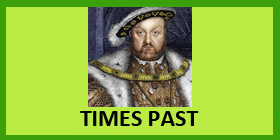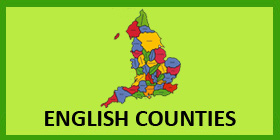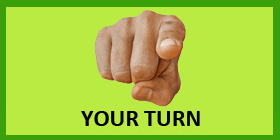




Back to the archives home page

May 2016
EDUCATION AGAIN AND SOMETHING PRETTY AMAZING.
In this, my penultimate post (for now) about education, I want to look, with some unusual outside help, at a possible future for education. You may not know
but later this year, 2016, I am launching something new educationally so there is a real purpose behind all these posts. I have already explained my worry about
the information-based society over-riding a knowledge-based one. It is the latter that we need to work on. We have this magnificent array of tools which we can
make use of to assist the way learning happens but we have to be careful how they are used. Let me give you an example.
As a part of both the current and new primary curriculum for history, pupils are required to know about famous people from the past. Some time ago, my eldest
granddaughter, then aged 10, was working on some homework while I was there. She had to find out 10 facts about Mozart. So, she googled him and wrote down ten facts.
I was a little concerned about how shallow this was and I wanted to know how they would then use these facts. I was also worried about those who had no internet
access and also what the teacher would do if her class all came up with the same 10 facts or worse still what if she got 300 different facts.
Out of curiosity, that word again, a few weeks later I asked what had happened with the homework. The answer, to my ears, appeared to be nothing. It was
handed in, marked and given back. I asked if she had listened to any music Mozart had written; she said no. I asked if she knew what life was like when he had been
alive; she said no. I asked if she knew that the only way people could listen to any music he wrote was by going to a concert and hearing the piece live as there
were no radios, CD’s or ipods in his time; she seemed a bit surprised here. My granddaughter is the bright side of average but this just emphasised, to me, my
concerns about information, curiosity and knowledge. She had not been motivated or encouraged to think and find out more.
A little later, when picking my younger granddaughter up from school, she suddenly said, as we drove home, “Do you know about Grace?” She, more than anyone,
has inherited her grandfather’s view on life and is quite prone to these non-sequitors. For some reason, maybe because of the research work I was doing at that time,
I said “who, Grace Darling?” I was right and she told me she had watched a video about her that day. But instead of just giving facts, she knew how many people had
been rescued, she had also been encouraged to think about it. She told me things about how Grace must have felt and how weird it was that each floor in the
lighthouse could have only one room. When I told her that I had visited the actual lighthouse, more questions poured out. However, neither of us could remember the
name of the ship and that was what we googled later that night. She had not only become aware of facts, she had gained knowledge and had her curiosity aroused by
the school and I, with my knowledge and experience, had nurtured it further.
Teachers need to be careful as to how they use, or make use of, this new ability to find out almost anything instantly. Old-fashioned skills, like
problem-solving, investigation and indeed writing, talking, discussing both one-to-one and in groups, should not be lost or supplanted by our new technology.
It is probably not surprising that others share this view but the source I wish to quote is perhaps a surprise. Sport has always been important in my life.
I believe we can all benefit by competition, not just to feel good as winners but to cope with the feelings of losing. In the eighties, at least at my own children’s
primary school, there was this non-competitive sports day. I challenged the Head on why the events didn’t seem to have winners and he said it was damaging to pupils
if they felt they had lost. My view is that we spend far more of our lives losing than winning and so to learn how to cope with having done your very best but
knowing someone has done better, is a pretty good lesson. In my youth I player cricket and rugby and, in later life, I did some rally driving. Even today I play
badminton twice a week and before each session I have but one aim; to win all my games. I seldom do but, if I feel I have done my best, I’m OK. In fact if I win
but feel I played badly, the joy of winning is less.
Anyway, back to my point. Sometimes an aura of unreality surrounds the sportsmen and women in our world. Their salaries, I refuse in some cases to say earnings,
makes you think they may be out of touch with reality. But it is not always the case. In 2013, after a season in which she broke nearly all records for any Alpine
skier in any season, a piece appeared on the blog of Tina Maze, a Slovenian Alpine skier and a bit of a hero of mine as you may know. I would have expected
a “thank you for your support”, “it’s been a tough year and now I need a long break” or even a “hey, I’ve just lived my dream” but no. What appeared was a piece
which made no mention of her incredible achievements but instead gave her thoughts and fears, and I am pretty convinced that there is no PR machine involved, on
education, children and new technology. I think everyone would do well to read it, and think. However (December 2019) I find it has now disappeared. I shall investigate.
It is we, the older generation, and my apologies to Ms Maze for grouping her in with me with regard to age, who can stop the world going in a way we know it
shouldn’t. For sure it will take work but it can be done. It may far easier to sit a 3-year-old down and let them play on a tablet but I believe it is wrong.
There is nothing creative being done, no curiosity being satisfied and no personal expression being exercised. It is, as I said, teachers and parents who have the
greatest influence over the young. It is we who must do something but, of course, your way is your decision. I can only point you in the direction I think is right.
I understand Tina Maze recently achieved a degree to allow her to teach. From what I have read, the teaching profession will be greatly enhanced should she
eventually take this route.
And that was where I was going to stop. Ending on the same note as a two-time Olympic Gold Medallist seemed a pretty good idea but then another thought came
to me and so there will be another blog.
A conclusion? We need to adapt the learning environment of young people to fit the modern world. We need, at primary level certainly, teachers who can make
that environment fun and interesting. We need those who have a personality that will not only motivate these young people but also create an infectious desire to
learn. We need to concentrate on learning not teaching. We need resources which can stimulate curiosity and indeed also have a personality, so much easier with
modern communication than when using a text-book. We need to move from an information-based society to a knowledge-based one. But we mustn’t lose the skills that
make us the human beings that we are. We need to be able to go and find things out not just sit in front of our screens. We need to communicate in person not just
impersonally.
I have no idea if Einstein ever said that he “feared the day that technology will surpass our human interaction. The world will have a generation of idiots”.
Without doubt there is truth in such a statement. We must not make our new methods of communicating, the new technology, into a false god . I see no need to smash
all the tablets as yet but they should be used wisely.
![]()

